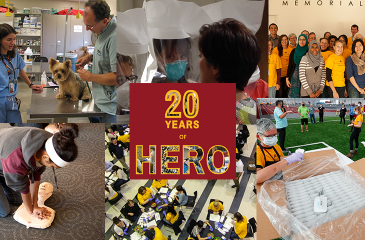Provider burnout is an epidemic that has been linked to numerous devastating outcomes. Many national health care organizations have stated that teamwork is critical to improving the problem. However, it is unclear if the extent of teamwork (through shared work) or makeup of the interprofessional team might influence wellbeing and burnout. Kylee Funk, assistant professor in the College of Pharmacy, along with colleagues from the Academic Health Sciences, Fairview Health Services and the Carlson School of Management, have worked to apply novel techniques developed in social network analysis to characterize systematic patterns of relationships between primary care providers (PCPs) and their interprofessional team. This project builds on recent qualitative research conducted by the group, which demonstrated that the presence of a pharmacist as an embedded member of the health care team may reduce PCP burnout.
“Together, our team includes a wealth of health care experience and expertise, spanning a variety of research methods, including those which are not typically applied to healthcare,” said Funk.
Recent work on physician networks has demonstrated that strong relationships among physicians caring for the same patient positively impact cost and quality outcomes. However, this method of analysis has largely focused on physicians and has not considered the presence of other professional care team members.
Using M Health Fairview electronic health records, their group has initiated mapping of interprofessional networks by identifying shared patients among team members to compute a "weighted degree centrality" network measure. They will examine correlation between each PCP's network and burnout survey data as well as other known contributors to burnout.
The project engages practitioners, administrators, and researchers well versed in provider burnout. To expand this work and address the problem of provider burnout, they plan to engage important stakeholders outside of the University, including the Minnesota Medical Association, Minnesota Academy of Family Medicine, and Minnesota Nurse Practitioners, and other primary care groups.
“In addition to valuable partnerships formed during this project, we envision our approach and findings will lay the groundwork for greater research,” explains Funk. “We plan to use the data collected from this study to support work examining interprofessional teams' impact on wellbeing for non-PCP clinicians, such as pharmacists, social workers, and diabetes educators, to better address the highly prevalent problem of clinician burnout.”
This initiative received funding from the Office of Academic Clinical Affairs BOLD Ideas Grant program which supports interdisciplinary teams seeking to tackle the “wicked problems” inhibiting the health and wellbeing of our communities.



